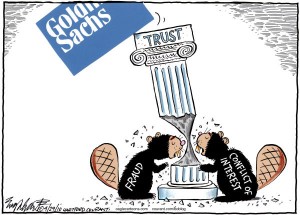
RIM (NYSE: RIMM) shares were down almost 20% after the company released its 2012 Q2 earnings report. The earnings missed analyst predictions by 9% and is down 58% from the same quarter last year.
Lower than expected demand for its older generation devices contributed to RIM’s decreased earnings and to higher amortization/depreciation expense. RIM’s balance sheet backs this up with an inventory turnover ratio for Q2 of 3.03 versus an average of 7.36 for the last four quarters.
This company based out of Waterloo, Ontario, has had a rough time this year after missing a product cycle, scrambling to get a foothold in the tablet market, having five executives leave in the last six months and having to cut 2000 jobs. As well, many concerns have been raised about its Co-CEO structure.
The outlook for RIM is uncertain as of when and if the company will make a come-back in light of the fast-paced and competitive mobile market. While the company is firmly rooted in the enterprise segment, the company should address its consumer market issues. Especially regarding its support for apps. With Google, Apple and Microsoft as competition, it is proving challenging for RIM to entice developers to its platform.

